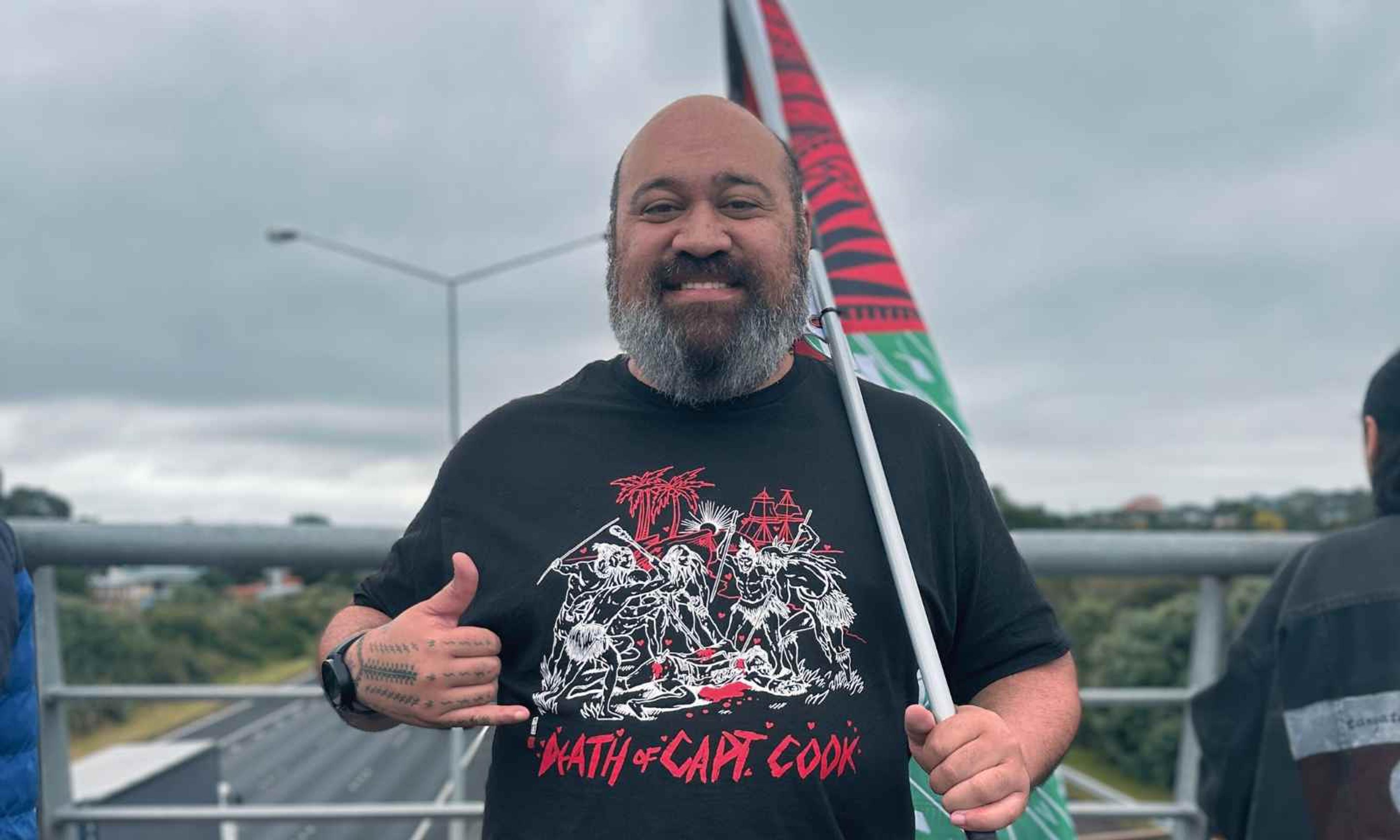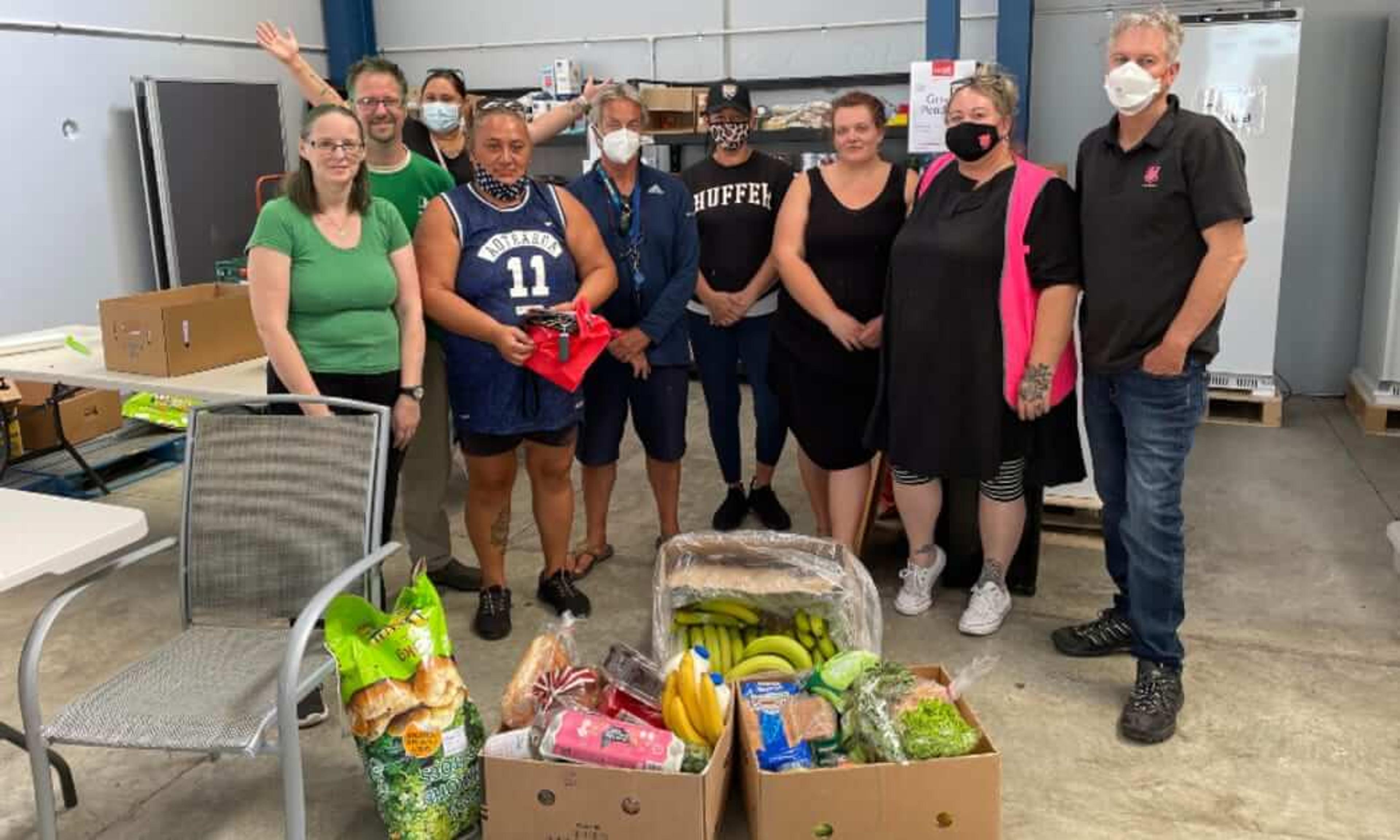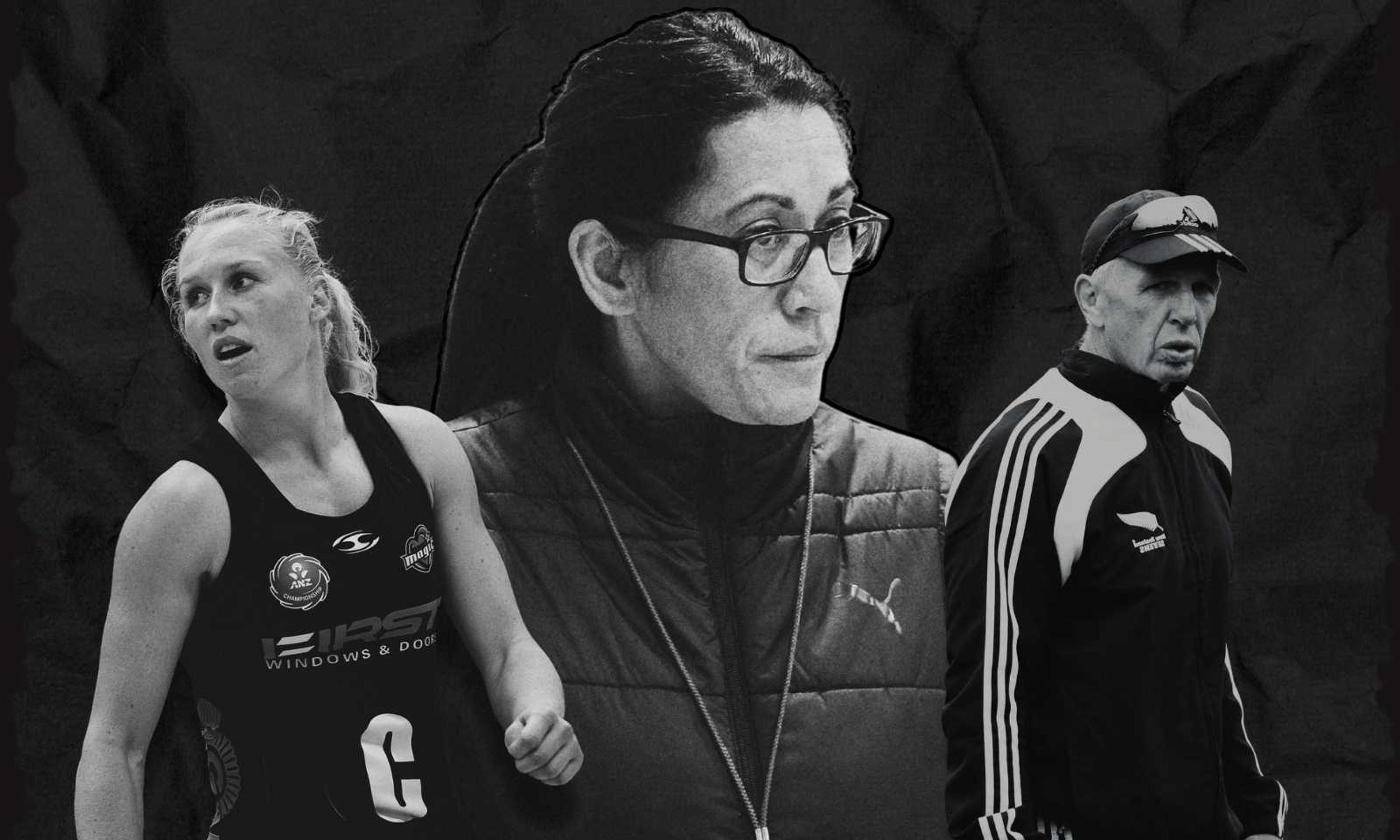

Co-op members all gather once a week to pack the food boxes together in a warehouse next to the Clendon family store. Photo/LDR/ Justin Latif
Photo/LDR/ Justin Latif
Kiwi Kai co-op founder says 'community supporting community' is key for tackling inflation
The innovator behind Kiwi Kai co-op says as hard times increase, the need for community must remain.


From grief to renewal: Niuean exhibition ‘Moana, Fonua’ brings generations together

Kiwi sports icons back Dame Noeline Taurua amid netball conflict and coaching ouster

‘One big family’: PNG voices unite for Tok Pisin Language Week

Pacific island nations criticised as ceasefire calls grow in ongoing Israel-Palestine conflict

From grief to renewal: Niuean exhibition ‘Moana, Fonua’ brings generations together

Kiwi sports icons back Dame Noeline Taurua amid netball conflict and coaching ouster

‘One big family’: PNG voices unite for Tok Pisin Language Week
The Salvation Army captain behind the innovative Kiwi Kai co-op initiative, says the food price crisis is another bill on the list of rising living expenses.
"It's gone crazy," says Captain Steve Molen, who’s the Army’s core officer overseeing Manurewa.
"You can be paying from $550 to $650 for an average three-bedroom house in Randwick Park and Manurewa for example. Some are even crazier, I've seen some $700 or $800 for the same.
"You put that on top of food prices, petrol prices, and general expenses to run a family; it's crazy times."
Price rises all round
Stats NZ has reported that food prices had seen a 12.1 annual increase in the year to March, the biggest jump since 1989.
“Increasing prices for barn or cage-raised eggs, potato chips, and 6-pack yoghurt were the largest drivers within grocery food,” Stats NZ’s consumer prices manager James Mitchell said.
They found fruit and vegetables spiked the highest at 22 per cent, followed by grocery food at 14 per cent and restaurant and ready-to-eat meals at 8.7 per cent.
At the bottom of the list were non-alcoholic beverages at an 8.2 per cent increase, with meat, poultry and fish at 7.8.
Additionally, Stats NZ released a report today where they found the consumer price index increased by 1.2 per cent in the 12 months to March 2023.
Consumer prices senior manager Nicola Growden says that inflation is at levels not seen since the 1990s, when many countries including Aotearoa suffered the impact of an international recession.
Molen says that these ongoing crises are exactly why imaginative and innovative responses are needed.
As reported by The Spinoff, the Kiwi Kai co-op initiative, headed by Molen, was a food response to support struggling whānau where they can purchase milk, meat, eggs and other essentials at a discounted price.
Additionally, members are given raised garden box set-ups for their homes so they can grow, trade or donate vegetables they have grown themselves.
"We sell milk at $2.77 for 2 litres whereas at the supermarket you'll be paying up to $4 now," Molen says.
"I remember buying mince for around $10 five years ago, and now a kg can be up to $16 or $18."
Molen says the co-op was built on mana-enhancing principles, where members can build independence and attain food security and sovereignty as they purchase and grow food.
"The garden planting fosters a spirit of generosity as we help and share, with the community supporting community and neighbours helping neighbours. It's a beautiful concept," Molen says.
Since then Molen says they have expanded to five co-ops, with two in Clendon, one out of a food bank in Manukau, another in Randwick Park and one in Papakura.
"We've got some plans to open up one in the social housing complex in Manurewa as well as a plan for another couple," he says.
With spikes in living expenses and other crises, Molen says that their work will continue but will see an increase in demand for more imaginative innovations.
"Even though we do food parcels and run social supermarkets and know they're needed, we can't keep going 'okay we've got this crisis let's keep rolling out the food parcels.'
"I think that's the season we're in now but we've got to be so much more creative."
As for the communities across the motu, Molen implores the public to come together in hard times rather than separate out of survival.
"Today we've become so detached. The more we get to know our neighbours the more we'll start creating authentic relationships with each other.
"When we have a pātaka on our street, bring food to each other, share our excess, and help each other.
"That's what we’ve got to build together in these times, rather than being dependent on the state or becoming so individualistic in looking after ourselves. We've got to go into community with each other.”